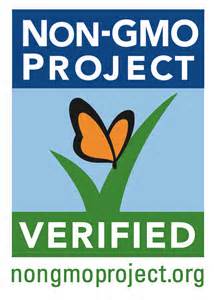GMO is one of those acronyms everyone recognizes, but few people understand what it really means and why we should be concerned about eating them.
GMO stands for Genetically Modified Organism. An example regarding our food supply; GMO crops are those plants that scientists have changed their genetic makeup so they can withstand direct applications of herbicides and/or produce insecticides in order to control invasive weeds and insects that threaten certain crops.
Supporters for GMO crops claim that genetically engineered plants are the way of the future. According to the Food and Agriculture Organization of the United Nations the potential benefits of GMO plant foods are:
- Better resistance to pests
- Require the use of less pesticides
- More nutritious
- Higher crop yields
- Longer shelf life
- Cheaper to produce
On the surface it all sounds great, a win-win for agriculture, society and the environment. However, many concerns continue to surface. It can be difficult to find the facts when there have been so few scientific studies providing hard evidence proving its safety and widely conflicting opinions. As we await more studies to bring clarity, we must consider what little we know so far:
- Weeds are becoming resistant to herbicides used on GMO crops, requiring stronger concentrations to be applied. (NBC News Sept. 2014)
- The current GMO crops on the market are not producing the increase yield as projected, are not drought tolerant and do not enhance nutrition. (The GMO Project website Jan 2015)
- In 2009, the American Academy of Environmental Medicine (AAEM) “asked physicians to advise all patients to avoid GMO foods”, declaring that, “Several animal studies indicate serious health risks associated with genetically modified (GM) food”. This includes “infertility, immune problems, accelerated aging, faulty insulin regulation, and changes in major organs and the gastrointestinal system.”
Hearing the above definitely makes me think twice before choosing to include GMO foods in my diet. How do you know what foods have been genetically modified? According to Dr. Gary Null’s book “Good Clean Food”, the foods that are more likely to be GMO are:
| GMO | Approximate Percent of Product on the Market that is GMO |
| Canola | 75% |
| Corn | 75% |
| Cottenseed | 85% |
| Soy | 91% |
| Sugar Beets | 95% |
| Artificial Sweetener Aspartame (Fermented GMO Soy and Corn) |
100% |
It is important to understand where the majority of GMO products are used. In his book, Dr. Null explains that these GMO foods are used as additives in the most unlikely food products:
- Corn can be found in high-fructose corn syrup, corn starch, corn oil, corn syrup, Cheez Whiz, frozen yogurt, canned fruit, ketchup, candy, cake mixes, frosting, mayonnaise, mustard, salad dressing, etc.
- Canola and cottonseed is a common ingredient is vegetable oil and margarine.
- Sugar beets are a cheaper way to get refined sugar. If a product lists “sugar” instead of “cane sugar” it is most likely from sugar beets.
- Aspartame is in soft drinks, gum, candy, desserts, yogurt, etc.
What can you do? Until more information is available about the safety of GMO products, it may be wise to avoid all foods that contain them.
Make a conscious choice not to purchase GMO products. Look for the “NonGMO Project Verified” seal and/or the USDA Certified Organic seal on all prepackaged foods. That way you are guaranteed that what you are eating does not contain genetically modified organisms.
Read your ingredient labels carefully. If the product is not labeled with one or both of the above-mentioned seals, try to avoid products that include corn, canola, cottonseed, soy, sugar beets and aspartame.
It is important that we learn more about GMO products and how they may affect our health before choosing to include them in our diets.


I totally agree with your informative post because it is better to be safe than sorry especially if they don’t know the full consequences of G.M.O in our society and environment. That is why I try to limit my processed food intake and only buy organic and locally grown food. Once gain loved your post, can’t wait to see more. Cheers, cyber-veggie.
Thanks so much for your comment!